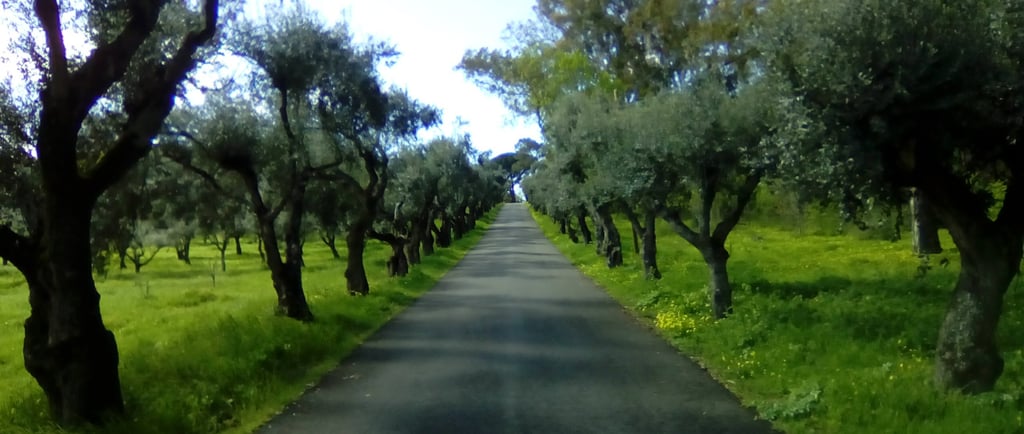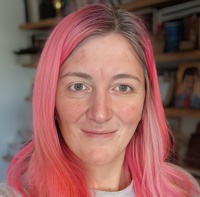SIXTY MINUTES DUST
ALM No.77, June 2025
SHORT STORIES


Jared stood in front of his childhood apartment building. His hand sweated, holding the detonator. It was the last hour before darkness—the time when the city was tinted with a golden tone, while the evening sun set above the horizon. But also, it was when he decided to take a last look at the only building that still stood upright. Once he activated the detonators buried in each wall and floor, he’d have exactly sixty minutes before the explosion erased his past forever.
Aware of that, he drew a deep breath and finally pressed the button. A soft hum resonated beneath his feet. Imperceptible at first but gradually growing stronger.
Jared entered the building, went up the stairs, and arrived at one of the apartments—one that he knew well. Gazing at the open door, his heart sped up, ticktocking. He stepped inside, knowing from past demolitions what would come next: echoes—sounds and fleeting images recorded by the building itself during the civility years, released briefly, only once, just before destruction.
As the detonators heated the plaster and concrete, Jared was wide-eyed, waiting. The living room shimmered, and ghostly outlines took shape, weak and translucent, as figures reflected on glass.
“Jared! Dinner’s ready!” His mother’s voice sounded; her tone forgotten for a long time. Before him, an image flickered into clarity—his mom was setting plates on the table, smiling. A younger self appeared and ran past her, laughing, and sat immediately for dinner.
Jared lifted his hand, trying to reach the ethereal image of his mother. But she vanished when his fingertips tried to catch her, leaving only chilly air behind. A grimace tightened his face as he lowered his hand, eyes falling to his wristwatch—forty-five minutes left.
As he moved forward through the living room, more visions were revealed: his father repairing an old buzzing radio; Jared, in his early childhood, building towers of wooden blocks while his mother clapped as they tumbled down.
The walls continued replaying conversations—useless arguments, mundane chats, and laughs. With each recreation, Jared’s breath became more unsteady. He wanted to keep each precious fragment forever and engrave it into his memory.
Thirty minutes.
He entered his old child’s room. His throat tightened when the surrounding walls showed crayon art, superhero posters, and spoiled stickers. Subtly, the air transformed again, revealing his mother seated beside his bed, singing a lullaby. He was ill, maybe nine, but his mom’s presence cured him then, too. Jared could no longer hold the tears. Salty, they trailed until the tip of his dried tongue—an undeniable reminder that he was still alive.
For more than twenty years, he’d wandered beyond the city limits, returning again and again, searching for another survivor, another voice, another heartbeat. But he’d found nothing. Except this—
He found the abandoned libraries. It was there that—between dusty manuals and technical schemas—he’d taught himself demolition. He studied explosives, structural weaknesses, and controlled detonations. However, no manual prepared him for what happened during his third demolition. When he activated the charges, the building walls fluttered, warmed, and images and whispers emerged—reflections of lives once lived there, which were released only at the brink of destruction, and then lost forever. He would realize, later, that this phenomenon occurred exclusively at sunsets.
Fifteen minutes.
In his parents’ bedroom, Jared saw them talking. “The city’s no longer safe,” his father murmured, walking quickly from one side to the other. “We must leave.”
“We can’t abandon our home,” his mother said, frozen, squeezing her fingers together.
Jared watched their figures fade out, voices turning off. He stepped forward, eyes scanning the remnants left around the room. On the dresser sat a small, dusty bottle—his father’s cologne. He picked it up, uncapped it, and inhaled. A pine scent flooded, bringing memories of his father’s presence—his calm eyes scrutinizing broken electrical devices, his big hands repairing them. With no hesitation, Jared slipped the bottle into his jacket pocket.
At one last glance, he discovered something else—a florid silk scarf, folded and hidden beneath the dust. He lifted it, recognizing his mother’s favorite. He shook the grime, forgetting the fabric’s coolness, and clothed it around his neck. Leaving the room, he imagined his mom’s hands, warm and tender, cherishing his cheeks.
Ten minutes.
The vibrations grew on the ground. Jared stood still, watching for the last time the home he knew so well. When the minute hand reached twelve, the memories locked in the walls would vanish forever.
Five minutes.
Jared approached the exit when a final vision appeared, stopping him abruptly. His parents stood near the front door, holding his hands tightly.
“Promise you’ll always remember,” his father begged. “You’ll take care of yourself—anything could happen.”
“I promise,” Jared heard himself reply, as the image faded away, the figure’s gaze fixed, unaware of what awaited him.
Two minutes.
He crossed the door and ran downstairs. When he reached outside, the evening air choked him. His heart was racing, and the tears were drying slowly on his face. The building shook behind him. Jared glanced at his watch—seconds remained.
The sun had barely set below the horizon when the explosion propagated. Dust and smoke bloated the air, fragments scattering like suspended stars. Jared stood motionless, glancing at the mountain of rubble that had been his home—the particles mixed on his tongue, the acrid taste of demolition.
Without taking his eyes off the ruins, as the last confirmation act, he slipped one hand into his jacket pocket. His father’s cologne was still there. Then, he adjusted his mother’s scarf around his neck.
“I remember,” Jared muttered. “I won’t forget.”
With a deep breath, Jared turned and walked away. The city was now empty and devastated. Yet deep within, he recognized he wasn’t alone—the voices and images he’d saved would remain alive forever in his heart. That was enough, for now. The search—although endless and lonely—had already begun.
Paula Vergara is a speculative fiction writer whose work explores themes of memory, identity, and the remnants of civilization. Although she had an imaginative mind as a child and wrote many stories, she abandoned creative writing in her twenties while pursuing her Mechanical Engineering degree. After graduating, she spent more than ten years in the manufacturing industry before transitioning into a career as a software engineer in 2020. Over time, she found it challenging to reconnect with creative writing, but in 2025, she made a firm decision to return. She is now pursuing the Creative Writing Certificate at Full Sail University to immerse herself fully in this exciting new world.

